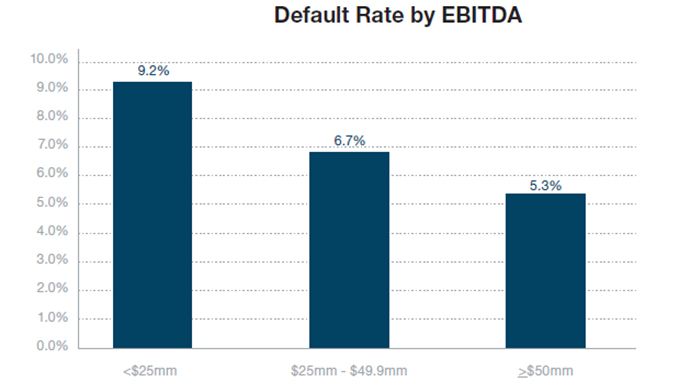Overall default rate rose to 8.1%, up from 5.9% in Q1
New York, NY, July 29, 2020- Proskauer, a leading international law firm, announced its Q2 Proskauer Private Credit Default Index which tracks, on a quarterly basis, the default rates of senior secured and unitranche loans.
“While we have seen some very encouraging signs in recent weeks, the real test will be in the third and fourth quarters of this year. If there is one note of caution from the study, we did see an increase in defaults in the second quarter. This was primarily among smaller companies with EBITDA less than $25 million, who often operate with more restrictive loan covenants.” said Stephen A. Boyko, co-chair of Proskauer’s Corporate Department and Private Credit Group.
As of the end of Q2 2020, the Proskauer Private Credit Default Index reported the following:
- Overall default rate was 8.1%, up from 5.9% in Q1.
- Companies with more than $50 million of EBITDA at the time of origination had a 5.3% default rate, up from 4.4% in Q1.

- Companies with $25-50 million of EBITDA had a 6.7% default rate compared to 5.2% in Q1.
- Companies with less than $25 million of EBITDA had a 9.2% default rate in Q2 compared to a 7.0% default rate in Q1, with more than 46% of the defaults concentrated in companies with less than $15 million of EBITDA. The higher default rate for smaller companies likely reflects the fact that on average those companies have a greater number of financial covenants than loans to larger companies.
The Index also includes as a proprietary feature for clients an analysis of defaulted loans by industries, including: consumer/retail; food/beverage; healthcare; manufacturing and software/technology.
The Proskauer Private Credit Default Index includes 546 active loans in the United States, representing $101.6 billion in original principal amount. The number of deals in our database for Q2 declined from 576 in Q1 because of loan payoffs, restructurings, and slower than typical deal flow related to COVID 19. The Index includes companies across all major industry groups with EBITDA (earnings) from $0 to more than $1 billion. While there are varying conventions of what is considered a default for purposes of calculating a default rate, the Index includes loans that have a payment, financial covenant or bankruptcy default, loans that are otherwise in default if the default is expected to continue for more than 30 days (excludes immaterial defaults) and loans that were amended in anticipation of a default.
The Private Credit Group continues to create tools that offer unique insights to their clients, including an annual survey that features predictions from top lending institutions, which compliments the findings of Proskauer’s proprietary Private Credit Insights annual report. And since the onset of the COVID-19 pandemic the group has begun releasing short, pulse surveys in order to gain insights on the impact of the pandemic on the private credit market. Private Credit Insights and the Proskauer Private Credit Default Index have been featured in the Wall Street Journal, Private Debt Investor, Institutional Investor and Law 360.
Over the past five years, Proskauer has worked on more than 800 deals for more than 75 private credit clients across the United States and Europe with an aggregate transaction value exceeding $150 billion.
As a market-leading advisor to the private credit industry, Proskauer has assembled a cross-disciplinary finance and restructuring team exclusively dedicated to private credit investors. This team includes over 50 restructuring and transactional lawyers focused on representing credit funds, business development companies, and other direct lending funds in the restructuring of “clubbed” and syndicated credits and preferred equity investments.
Media Relations Jennifer Talbott jtalbott@proskauer.com
For all other questions please contact our Private Credit Team privatecredit@proskauer.com.

